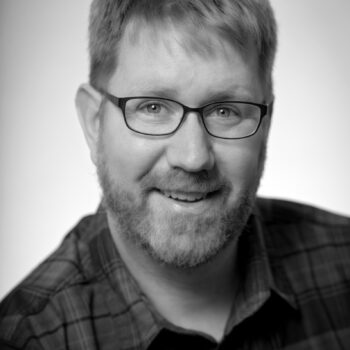Before the election, I assumed that we would defeat Donald Trump but feared that our top-of-the-ticket victory would paper over how weak the left is. I was half right. We beat Trump and, all told, it wasn’t close: a margin of seven million votes, or 4.4 percent. We flipped Georgia and Arizona and rebuilt the blue wall in the Midwest.
But we failed to hit many of our most important goals — starting with our inability to defeat the neoliberal wing of the Democratic Party in the presidential primary. In the general, we did not capitalize on the opportunity to wipe out Republicans in state legislatures on the eve of 2021 redistricting, a shortcoming that will reverberate into the 2030s, just as the painful losses of 2010 led to a decade of real pain for communities across the country. And to date, we have failed to win the U.S. Senate, coming two seats short. Our only remaining hope is the work of hundreds of organizers — led by a brilliant community of Black women organizers — in Georgia.
One imagined that we could persuade the electorate to hold Republicans accountable for their failed governance. That we could exact a serious price for supercharging white supremacy, for making cruelty a core tenet, for dramatic failures on COVID-19. That there would be a cost to assaulting every major institution of society, from the media to science to the rule of law itself — weak or problematic institutions that we want to transform from the left, not abandon to a white nationalist right. Our imaginations were not met. Electorally speaking, we failed to defeat Trumpism in 2020. Indeed, but for COVID-19, Trump would almost surely have won re-election.
As organizers, we are called to reflect on our successes as well as our shortcomings, on what worked and what went wrong. One of the clearest takeaways is that long-term organizing mattered. In the places where we made the greatest gains in converting the demographic possibilities of the new American majority into actual progressive outcomes — for surely demography alone is not destiny — organizers have been working for years, slowly but surely building their membership, leadership, scale, and electoral practice.
This is not an entirely new story, and it is echoed across the pages of The Forge. What is perhaps less evident is how much of this capacity is new. I work at the Center for Popular Democracy and CPD Action, where I often point out that the strength of our political program rests on a bedrock of organization and capacity building that has taken place, in large measure, in the past five-to-ten years. Some of the best known and most effective community organizing groups in key states have been built in the past decade. To name just a few CPD affiliates, LUCHA in Arizona was founded in 2010, New Georgia Project in 2013, and BLOC in Wisconsin in 2017. UNITE HERE, whose work is featured in this issue, began organizing in Arizona a decade ago.
To put a finer point on it, a decade of work in the trenches in key states, building permanent organizing capacity, is what made our victories possible. But the establishment and scaling of people’s organizations is only the first and second stages of the work. In recent years, we’ve seen increasing sophistication in the state ecosystems such that the organizing sectors are able to do four things better than before. First, the scale of membership development, leadership capacity, and geographic reach has grown. Second, the sophistication of the electoral practice inside these organizations has increased, ranging from greater utilization of data, analytics, and testing to digital and relational organizing methods to the development of increasing numbers of staff with the requisite electoral skills and experience. Third, these people’s organizations have simultaneously, though unevenly, brought their issue organizing and movement mobilization to scale; these are crucial, if underappreciated electoral capacities. Finally, we are seeing increasing growth of “alignment tables” in states, modeled on Minnesotans for a Fair Economy of the early part of the decade; more recently, the Statewide Alignment Group (SWAG), now renamed Florida for All, has been a model for the nation. In these formations, constellations of groups devise a long-term strategy for statewide power-building and shared capacity, with a complementary division of labor among the organizations.
What I draw from all of this, and from the articles in this issue of The Forge, are four key lessons:
-
Vision matters. In spite of the limited choices on the ballot, our victories were powered by the uprising, the resistance, and a vision of a more just society and the possibility of a new form of politics.
-
Relationships matter. We should continue to invest in forms of organizing that privilege long-term relationships and turn a critical eye on approaches and tactics that don’t strengthen such ties.
-
Capacity matters. Though the infrastructure of the left is strongest in central cities, we need to continue to grow our capacity — in cities, in suburbs, and in rural areas — with an eye towards our justice agenda. We aren’t dense enough in any of our geographies. But capacity is more than geographic reach; it’s also the human, financial, and other resources to power the work. Building capacity is a long-term project.
-
Method matters. The pandemic forced most of us off the doors and to invest in our phone, text, and digital strategies. As we’re able to get back out in the field in 2021, we have an opportunity to build next generation models that draw on the best of recent practice innovations hybridized with the tried and true.
Going forward, our task, rooted in our communities and workplaces, is to layer strengthened electoral practice with deeper, long-term, power-oriented organizing and continued sustenance of social movements. This summer’s uprising — the largest mass movement in U.S. history — built upon generations of struggle in all three modes and helped to propel our victories, from the defeat of Trump on down. All of our work must be rooted in a strong moral vision and a powerful, practical articulation of how we can transform our society and improve people’s lives.
Inside the Issue
We’ve brought together organizers from across the movemen to reflect on the work that went into this election: what our movement did well, what lessons we learned, and what it all means for the path ahead.
Deepak Bhargava of CUNY School of Labor and Urban Studies on the importance of progressive organizations in winning this election; Deepak Pateriya of Community Change Action on organizing for long-term power; D. Taylor of UNITE HERE on why door-knocking mattered; Katey Lauer, Sarah Hutson, and Stephen Smith of West Virginia Can’t Wait on building volunteer leadership and capacity while turning out voters; Lara Putnam of the University of Pittsburgh on the limits of anonymized voter contact; Matt Morrison of Working America on building scalable voter outreach programs; Morgan Harper of the American Economic Liberties Project on fighting corporate power in the Biden era; Sarah Jaynes of Rural Democracy Initiative on the importance of organizing in small towns and rural areas; Andrea Mercado of New Florida Majority on pivoting strategies during the pandemic; Branden Snyder of Detroit Action on changing the state of politics rather than electing a particular candidate; Doran Schrantz of ISAIAH on getting real again about organizing people; Katie Paris of Red, Wine, & Blue on organizing suburban “wine moms”; Maurice Mitchell of the Working Families Party on why we need to fight not just for people but for acres; Rajan Narang and Dan Cantor of the State Democracy Project on doing the work to democratize elections; and Renata Pumarol of ACRE on why we must organize against racism in every single corner of this country to defeat not just Trump but Trumpism.
Plus, an all-star panel, co-hosted with Organizing Upgrade, featuring Andrea Mercado of New Florida Majority, Anthony Thigpenn of California Calls, Burt Lauderdale of Kentuckians For The Commonwealth, Elianne Farhat of TakeAction Minnesota, and Maurice Mitchell of the Working Families Party.

